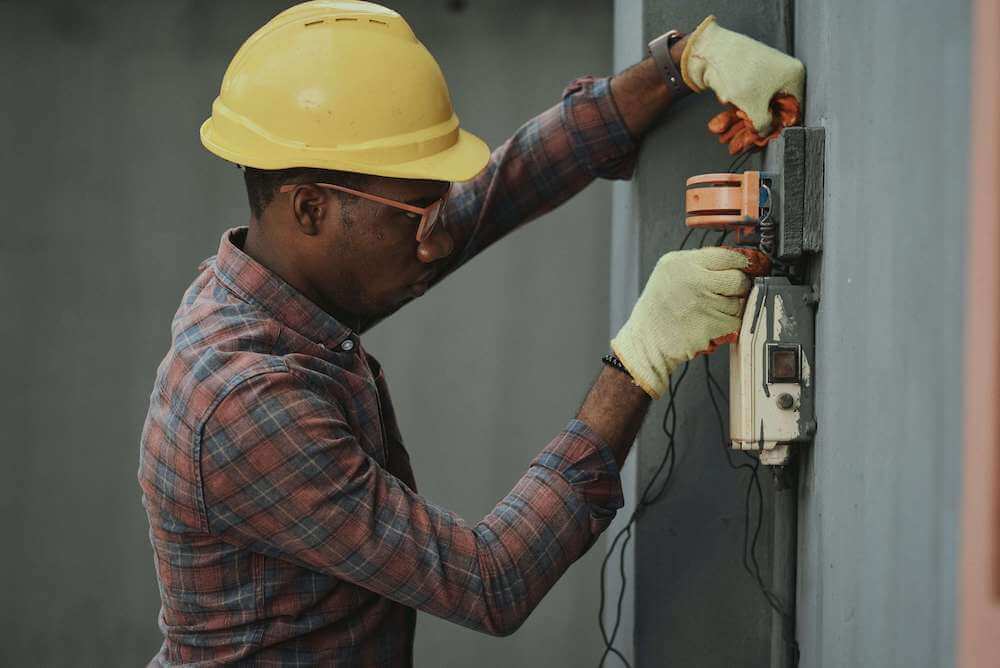Electrician classes near me in Boston
In the Boston metro area, the average cost of a Electrician class is $12000 and the average class length is approximately 36 weeks long
Trade and industry classes near
Boston, MA 02110Online classes
Financial aid
Other programs you might like within trade, construction, and industry

Southern New Hampshire University
BS Operations Management with concentration in Logistics and Transportation
- Complete your degree at your own pace
- 24/7 online accessibility

Southern New Hampshire University
MS Management with concentration in Construction Management
- Learn to manage essential project teams
- Program accredited by ACBSP

Southern New Hampshire University
MBA with concentration in Operations and Supply Chain Management
- Can be finished in about 1 year
- No GRE/GMAT
Schools not available on Dreambound
Ashworth College
Online Electrician Classes
Our Online Electrician Training courses align with the National Electric Code (NEC) to help you develop the safe, electrician skills employers demand. That includes electrical equipment installation and tool usage, basic electricity and AC current theory, and a wide range of installation procedures for both residential and commercial properties.
No cost info

North Orange Continuing Education - Anaheim Campus
Electrical Technology Certificate
- Practical training to install, maintain, and repair electrical equipment
- Hands-on application with foundational skills for electrical trades
No cost info
Baltimore City Community College
Electrical Engineering
- Small class size
- Virtual & remote learning
No cost info
Independent Electrical Contractors Rocky Mountain
Online Electrician Classes
Licensed electricians are skilled professionals that fulfill a vital role, and the opportunities for growth and success are virtually limitless. And although the education and training process takes some time and effort, there’s no doubt that it’s absolutely worth it.
Here’s more good news: now, there are more options than ever to make electrician training as accessible and convenient as possible. As a result, you can find many ways to fit the required courses into your schedule. Independent Electrical Contractors Rocky Mountain (IECRM) offers online classes for electrician training, so you can take the first steps toward your future career without even leaving your home.
No cost info
University of New Mexico Continuing Education Tech Bootcamps
Residential Electrician - Online
Electrical work has some of the best opportunities for career stability, especially for residential technicians. If you want to start a career in electrical work, this 100% online course will prepare you for an entry-level residential electrician apprenticeship.
No cost info
U.S. Career Institute
Online Electrician Classes
The main focus for Electricians is to install, repair and maintain electrical power, lighting, communications and control systems in businesses, homes and factories. Our online electrician trade classes begins with the basics of communication, bidding, records and ethics. Then moves on to the career focused subjects of safety for Electricians, electrical circuits, the National Electric Code® and much more.
$1,239 total
Electrician Classes Near Me in Boston
Boston, the bustling hub of Massachusetts, offers a promising job market for aspiring electricians. With a thriving economy and a growing demand for skilled tradespeople, the city presents an excellent opportunity for individuals looking to become electricians. The electrician salary in Boston is highly competitive, making it an attractive career path for those seeking a stable and well-paying profession. Whether you're considering an electrician school or just exploring your options, Boston has a variety of classes and training programs to help you on your journey to becoming an electrician.

What is an Electrician?
An electrician is a skilled professional responsible for the installation, maintenance, and repair of electrical systems and components. They are essential in residential, commercial, and industrial settings, ensuring the safe and efficient operation of electrical infrastructure. Electricians work with a wide range of electrical equipment, from power grids and generators to lighting fixtures and appliances.
Training Requirements
To become an electrician in Boston, individuals must meet specific training requirements. This typically involves completing a combination of classroom instruction and hands-on training, often through an apprenticeship program or a technical school. The training covers topics such as electrical theory, safety protocols, and the National Electrical Code, equipping aspiring electricians with the knowledge and skills necessary to perform their duties effectively.
The Fastest Path to Becoming an Electrician in Boston
In Boston, the fastest path to becoming an electrician often involves enrolling in a vocational or technical school program. These programs, which can be completed in as little as one year, provide comprehensive training and prepare students for the licensure exam required to work as an electrician in the state. By completing a program at an accredited institution, individuals can quickly gain the necessary qualifications and begin their careers as electricians.
Electrician Classes in Boston
Boston offers a variety of electrician classes to suit the needs of aspiring professionals. One such option is the program offered at Benjamin Franklin Institute of Technology, a well-respected technical college in the city. The program, which can be completed in as little as 18 months, covers topics such as electrical theory, circuit design, and the National Electrical Code. Tuition for the program is approximately $25,000, and applicants must have a high school diploma or equivalent.
Another option is the electrician training program at Bunker Hill Community College. This two-year associate's degree program provides a comprehensive education in electrical systems, including hands-on experience in the college's well-equipped labs. Tuition for the program is approximately $12,000 for in-state students, and applicants must meet the college's admission requirements.
Exploring a Career in Electrician Outside Boston
For those inspired to become an Electrician but living in a different state, achieving your ambition is still very much a possibility. You could explore becoming an Electrician in Charleston, Kansas City, Las Vegas, Raleigh, Washington. And if you're not near any of these, Dreambound is here to assist by offering an easy way to find and compare Electrician classes by entering your zip code. With the right mindset and resources like Dreambound, starting a career in trade, construction, and industry is possible from any place.
Online and Free Electrician Classes in Boston
While in-person electrician classes are the most common option in Boston, there are also online and free opportunities available. Several online programs, such as those offered by ed2go and Udemy, provide flexible and accessible training for aspiring electricians. These programs can be completed at the student's own pace and often offer more affordable tuition rates.
Additionally, some community organizations and workforce development centers in Boston offer free or low-cost electrician training programs. These programs are designed to provide access to quality education and job opportunities for individuals from diverse backgrounds, making the path to becoming an electrician more inclusive and accessible.
The Certification Process
To work as an electrician in Boston, individuals must obtain the appropriate licenses and certifications. This typically involves passing the Massachusetts Journeyman Electrician Exam, which tests an individual's knowledge of electrical theory, safety, and the National Electrical Code. Once licensed, electricians may also pursue additional certifications, such as those offered by the International Association of Electrical Inspectors (IAEI) or the National Fire Protection Association (NFPA), to demonstrate their expertise in specialized areas of the field.
The Job Environment for Electricians in Boston
The job environment for electricians in Boston is robust and diverse. Electricians can find employment in a wide range of industries, including construction, manufacturing, healthcare, and telecommunications. Major employers of electricians in the city include Eversource Energy, National Grid, and various electrical contracting firms. Additionally, the city's thriving real estate market and ongoing infrastructure projects create a steady demand for skilled electricians to maintain and upgrade electrical systems.
Final Thoughts
Becoming an electrician in Boston can be a rewarding and lucrative career path. With a variety of training options, from vocational schools to online programs, aspiring electricians have ample opportunities to gain the necessary skills and qualifications. The city's competitive electrician salary and promising job market make it an attractive destination for those looking to enter the electrical trade. By taking advantage of the electrician classes and resources available in Boston, individuals can embark on a fulfilling career as an electrician, contributing to the city's continued growth and development.
If you're considering a career shift or curious about different professional paths, Dreambound has written many guides to help you in making informed decisions. Here are a few:
FAQ
What is Dreambound?
Dreambound's platform has the largest number of options for students to find career & technical education. While we can't guarantee any career outcomes, our mission is to provide you with the information you need to find a program that helps you start your new career journey.
What programs do you offer?
Dreambound has over 70 programs across healthcare, technology, business, and industrial trades. This includes programs such as Medical Billing, Cybersecurity, and welding.
Do you offer financial aid?
Some of our schools offer financial aid for those who qualify. Many others offer payment plans, where you can pay the cost of class over time.
Is it possible to do online classes?
Yes, Dreambound offers many online programs. On Dreambound's search, you can filter by online, in-person, and hybrid (part online, part in-person).
